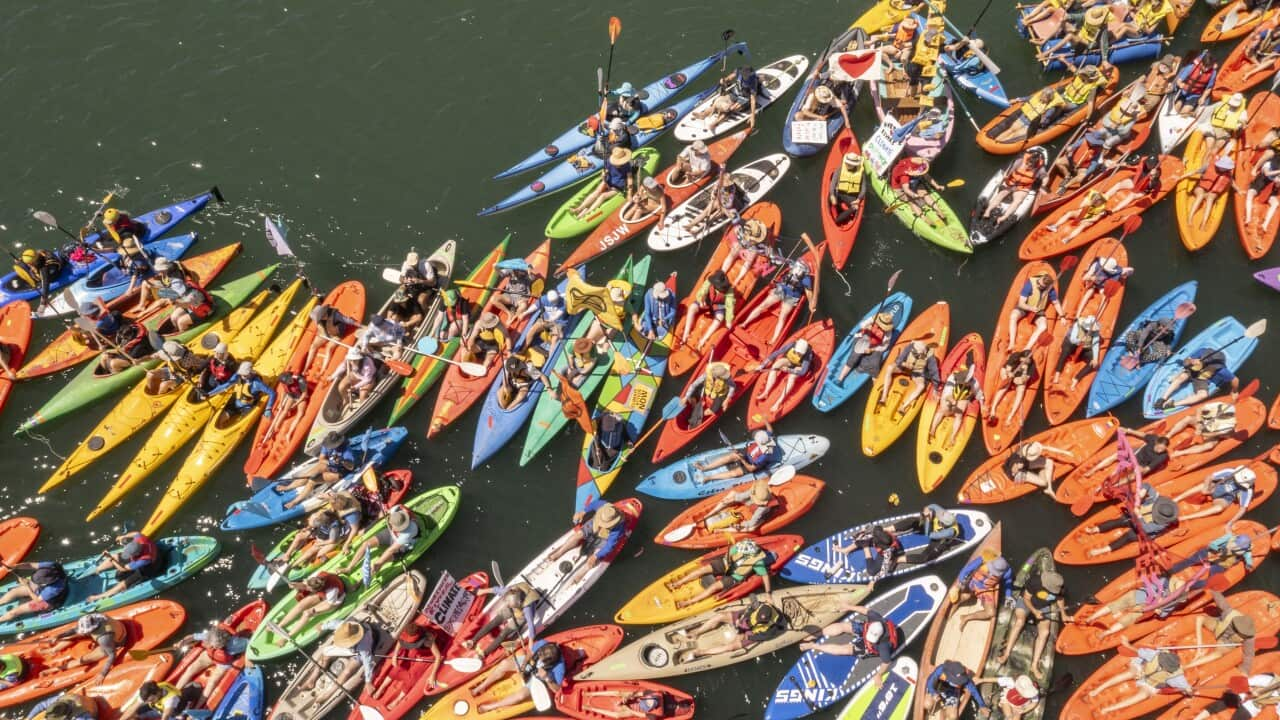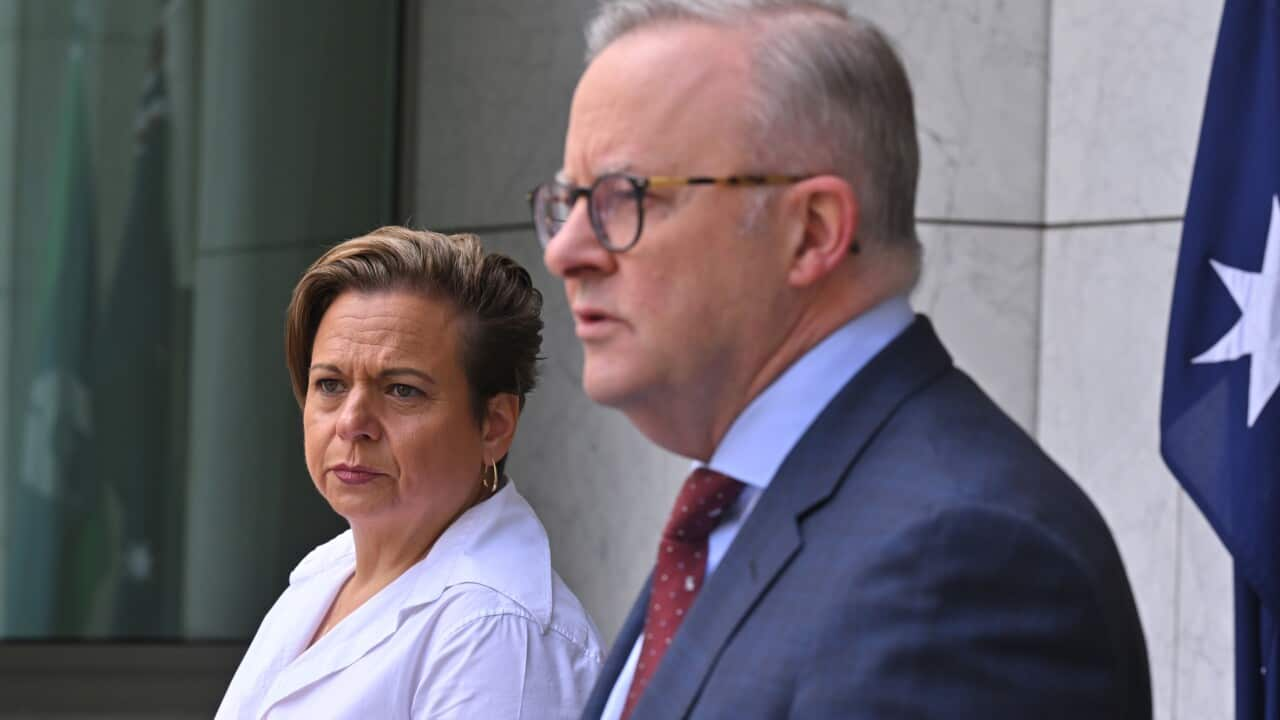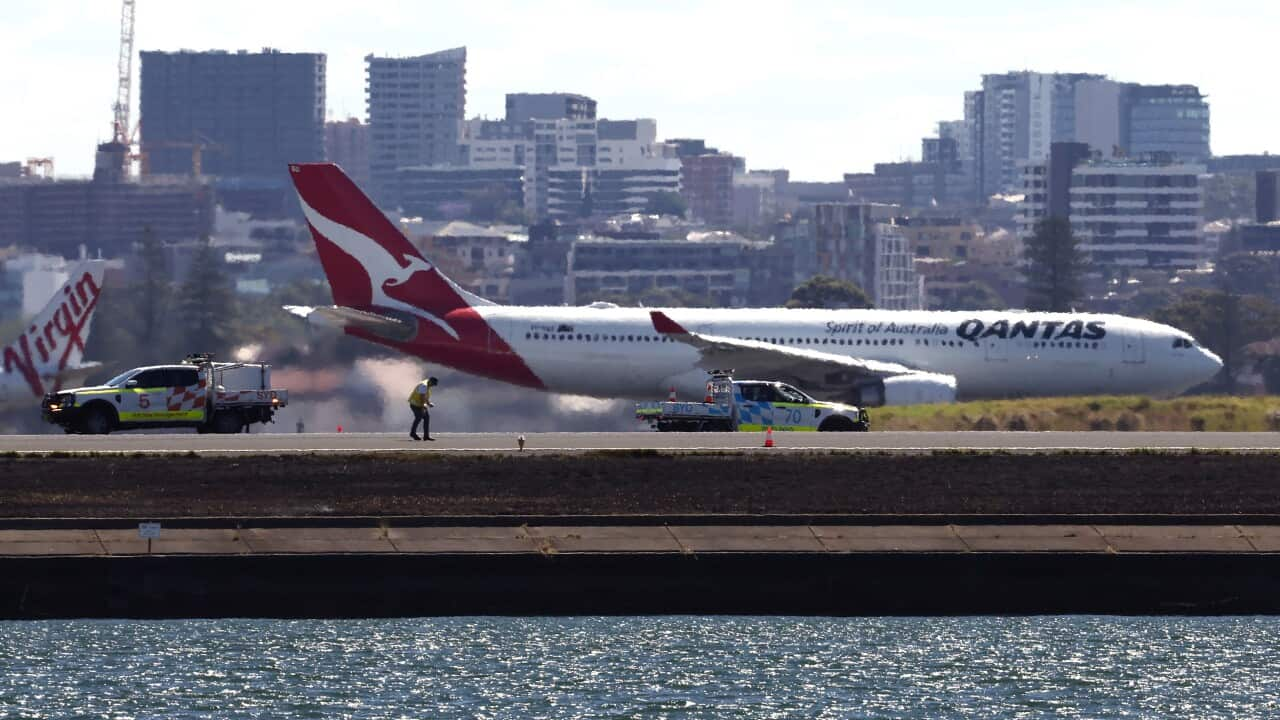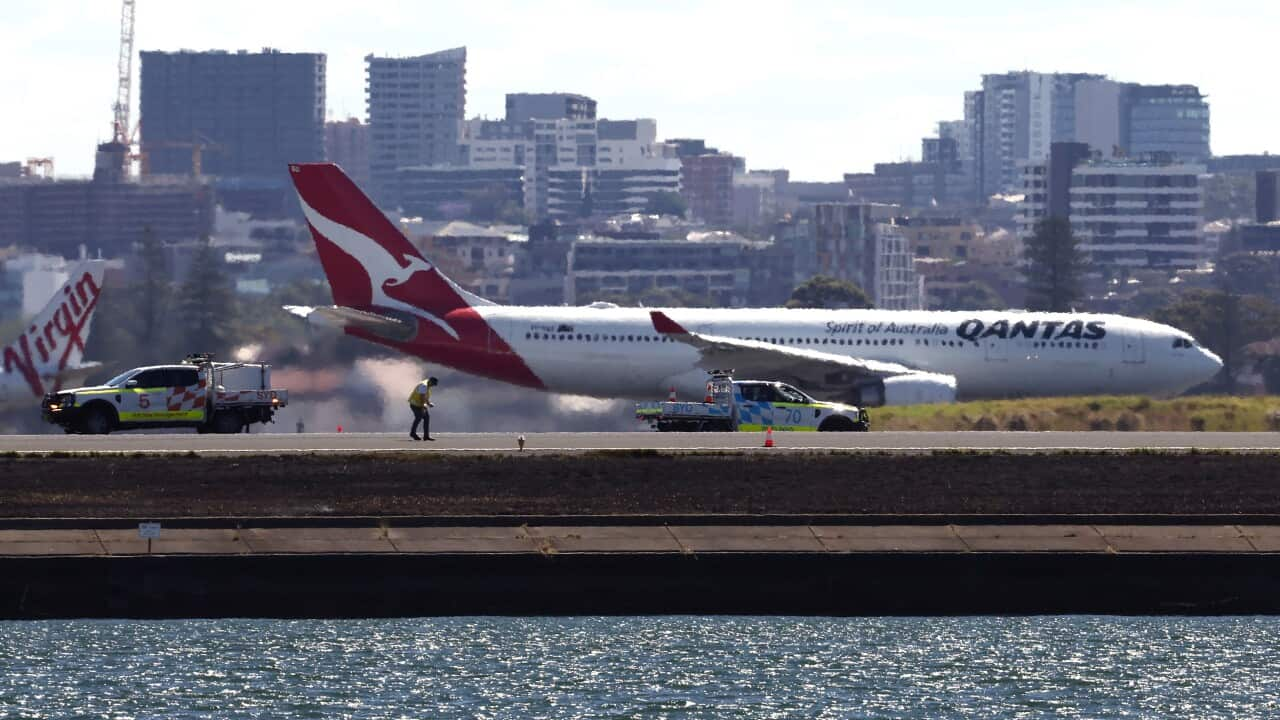Climate action group Rising Tides is facing a legal challenge in the NSW Supreme Court after expressing intention to block a waterway leading into the Port of Newcastle, with proceedings now adjourned until Tuesday.
The group said protesters on kayaks plan to remain in the water for 50 consecutive hours over the weekend of 22 to 24 November, to disrupt passage to what is the world’s largest coal port.
It’s said to be part of a “protestival” that’s “family-friendly” with workshops and performances from musicians including John Butler and Peter Garrett.
But NSW police commissioner Karen Webb has brought a legal challenge against the group to stop the kayak protest from going ahead.
A spokesperson for NSW Police media said Webb brought the case because “NSW Police currently hold significant safety concerns in relation to the proposed public assembly, particularly in relation to the activities to be conducted on or near the water”.
This is the second time in a month the NSW Police Force has tried to stop public protests through the Supreme Court — after unsuccessfully attempting to disallow a pro-Palestinian protest in the beginning of October.
Not the first waterway protest
This isn’t the first time Rising Tides has mobilised to disrupt the Port of Newcastle.
In fact, it will be the 13th time that such a protest has been held.
Last year, thousands of climate activists in kayaks blocked the water entry into the port for 30 hours — the time period stipulated on the accepted notice of intention.
Climate action group Rising Tides said the protest will take part of a larger 10-day event that is “family-friendly”. Source: Supplied / Rising Tides
NSW police later charged more than 100 kayakers who stayed out on the water beyond the deadline.
Community organiser for Rising Tides, Zack Schofield, was one of them.
“I made the decision to stay because I just felt that as someone who’s grown up in Newcastle and seen the coal ships come in and out of that port all my life, it was the time to really make a point,” he told SBS News.
“For the future of the city, the future of the country, we have a responsibility to pressure the government.”
‘Sends a very dangerous message’
Rising Tides says its proposed protestival event on Newcastle’s Nobby Beach will be the biggest yet — anticipating 10,000 people to turn-out over a 10-day period.
The group are demanding the government immediately cancel all new fossil fuel projects, tax fossil fuel export profits at 78 per cent to fund community and industrial transition and end all coal exports from Newcastle by 2030.
Community organiser Zack Schofield and dozens of climate activists are awaiting a result from the NSW Supreme Court. Schofield said more supporters are also “sitting on the floor and standing in the doorways” of the courthouse. Source: Supplied / Rising Tides
“While the UN says that we are well on track for over three degrees of warming this century, there has been no effective climate progress [in Australia] this year — the hottest year on record,” Schofield said.
“Our governments are ashamed of it, and that’s why they wanted to stop protests.”
Sue Higginson, Greens MP and spokesperson for climate change, said the NSW Police Commissioner’s decision to take Rising Tide to court “sends a very dangerous message”.
“[Rising Tide] approached the police in good faith seeking to work with them to ensure the event is safe and orderly and not only have they been let down they are now at the other end of a legal case,” she said.
“When the state fights the people in this way it says that something is very wrong with the administration of our democracy.”
Protests ‘draining police resources’
NSW has a permit system that allows protest participants to circumvent laws against blocking transport routes with police approval.
Section 23 of the Summary Offences Act requires protest organisers to inform the NSW police, via written notice, seven days before an event.
If organisers don’t hear a response, it means the protest is authorised to go ahead.
The move to challenge the the protest has been condemned by Green’s MP Sue Higginson who said: “it sends a very dangerous message to the people of NSW who care about the right to protest”. Source: Supplied / Rising Tides
In early October, the NSW police commissioner sought to shut down the 52nd consecutive week of the pro-Palestine protest, along with an October 7 vigil, both to be held in Sydney.
Days later, Minns said he considered NSW police should be able to close down protests if the cost of policing them is too high.
“If an application is made every single weekend, week after week after week, draining police resources and time and taxpayer money, police and taxpayers in the state are entitled to say we’ve got other things that are taking place in this busy city,” Minns said in October, explaining the cost of policing the 52 weeks of pro-Palestinian protests had been over $5.4 million.
Minns previously told the Newcastle Herald he does not want Rising Tides’ protestival to go ahead.
Schofield said Rising Tides will continue to assemble in public places in line with its democratic right.
“If we were to ban peaceful protests because of the apparent cost of policing them, what happens when the premier decides that it’s too expensive to hold an election or too expensive to ship ballot papers out to a particular electorate?” Schofield said.
“If there’s room that needs to be found in the budget, last year our governments gave the coal and gas industry over $14 billion in direct subsidies of taxpayer money.”

















